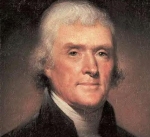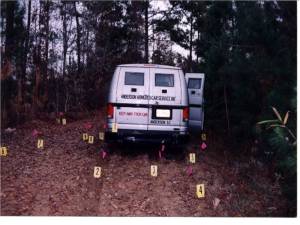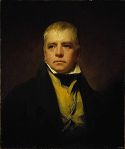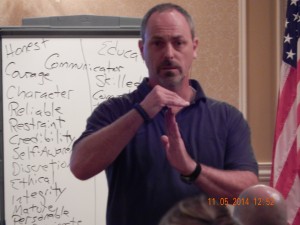 “And can the liberties of a nation be thought secure when we have removed their only firm basis, a conviction in the minds of the people that these liberties are the gift of God? That they are not to be violated but with his wrath? Indeed I tremble for my country when I reflect that God is just: that his justice cannot sleep for ever.”
“And can the liberties of a nation be thought secure when we have removed their only firm basis, a conviction in the minds of the people that these liberties are the gift of God? That they are not to be violated but with his wrath? Indeed I tremble for my country when I reflect that God is just: that his justice cannot sleep for ever.”
—Thomas Jefferson, Notes on the State of Virginia, Query 18, 1781
Jefferson is referring to slavery, which he called a “great political and moral evil.”
In this segment from the Police Dynamics Video Training Series, I demonstrate how to use the character quality definitions from the Character First curriculum to motivate and praise those under your authority.
After watching this video, every time you find yourself saying “good job” or “keep up the good work,” it should serve as a red flag. Realize that you have just praised someone for achievement instead of character, make the character connection by coming up with at least one character quality the person displayed, then praise them for the character quality as well. This will remind them to keep up the good character…!
– Benjamin Franklin
 Shortly after I took office as Sheriff of Dorchester County, we experienced a tragic crime. An armored-car was hi-jacked and one of the guards brutally murdered. Due to an intense investigation and some top-notch forensic work, we were able to identify the murderer and successfully prosecute the case.
Shortly after I took office as Sheriff of Dorchester County, we experienced a tragic crime. An armored-car was hi-jacked and one of the guards brutally murdered. Due to an intense investigation and some top-notch forensic work, we were able to identify the murderer and successfully prosecute the case.
Right after the jury came in with their verdict, I sought out my Detective Sergeant (now a Lieutenant) who had handled the crime scene and forensic portion of the case. I knew the conviction was largely due to his efforts and I wanted to recognize him for a job well-done.
So I found him out back of the courthouse and went up to praise him as any good Sheriff should. But instead of praising him for his achievement (gaining the conviction), telling him “good job,” or “keep up the good work,” I praised him for three character qualities. By “pitching” these character qualities, right across the plate so he could catch them, I made the “character connection” and ensured that I sent the right message.
Gaining the conviction was the achievement–the fruit. Character qualities like attentiveness, thoroughness, and diligence were the seeds that produced the fruit. If you focus on the fruit and neglect the seed, you can produce a bad crop. It’s the Law of the Harvest. According to our Character Maxim, if you focus on achievement to the exclusion of character, you encourage bad character.
Watch this short video excerpt from the Police Dynamics Video Training Series as I demonstrate how to use character-based praise to encourage high achievement.
Praising character over competence requires a new vocabulary. The 49 character qualities defined by Character First provide an excellent tool.
Do you remember your first pursuit? Most police officers do. They can turn out really good or they can turn out really bad. As law enforcement leaders, we can use character-based praise to help minimize the potential disasters associated with high-speed police pursuits.
In this short clip from the Police Dynamics Video Training Series, I use the story of a Rookie’s Pursuit to illustrate just how important it is to praise the character that produced the achievement rather than the achievement itself.
In this illustration, the Rookie exercised the character quality of self-control:
rejecting wrong desires and doing what is right.
His self-control is what kept his own emotions in-check and maintained his composure so he could make good decisions under pressure.
A story is told of two shopkeepers who were bitter rivals. Their stores were directly across the street from each other, and they would spend each day keeping track of each other’s business. If one got a customer, he would smile in triumph at his rival.
One night an angel appeared to one of the shopkeepers in a dream and said, “I will give you anything you ask, but whatever you receive, your competitor will receive twice as much. Would you be rich? You can be very rich, but he will be twice as wealthy. Do you wish to live a long life? You can, but his life will be longer and healthier. What is your desire?” The man frowned, and thought for a moment, then said, “Here is my request: Strike me blind in one eye!”
By contrast, consider the following story of Sir Walter Scott. For years, Scott was the leading literary figure in the British Empire. No one could write as well as he. Then the works of Lord Byron began to appear, their greatness was immediately evident. Soon an anonymous critic praised his poems in a London paper. He declared that in the presence of these brilliant works of poetic genius, Scott could no longer be considered the leading poet ofEngland. It was later discovered that the unnamed reviewer had been none other than Sir Walter Scott himself.
These two stories typify the choices you have when it comes to leadership and your attitude toward others. Jealousy is the one fly in the ointment that will blind you to the talents of others and your rightful ability to appreciate the gifts within your organization. The success of your competitors can stress you or strengthen you; the choice is yours.
John Maxwell said, “There is nothing wrong with competition. The problem for many leaders is that they end up competing against their peers in their own organization in a way that hurts the team and them.” And this is your challenge as a leader; not to allow your ambition to turn to jealousy. Consider these three questions as you evaluate your jealousy quotient.
What do I celebrate? Tom Peters said, “Celebrate what you want to see more of.” What a great observation. A jealous person will find it difficult to celebrate the success of his competitors much less that which comes from within his own organization. Resentment and a poor attitude are self-inflicted barriers that will always hold you back.
But with a sincere affirmation for the success of others, you will begin to feel the reciprocal winds of good favor move in your direction. When you celebrate the achievements of others you will more clearly understand your purpose as a leader.
What do I value? The measure or lasting implication of the success of others can be subjective. If that success was attained by shady or unethical means the reason to celebrate can be nullified. But how do you respond when the process was fair and honest? At the end of the day it is not about becoming like the merchants keeping score, but in respecting the integrity of the system.
Albert Einstein said, “Try not to become a man of success, but rather try to become a man of value.” It is because you are a leader with values you will applaud and appreciate the gifts of others. And what you value you will promote. There is no room for jealousy in the heart of a leader with clear values.
What do I see? Is the prism by which you look at the success and accomplishments of others tinted green? Do you put on a good face in public but privately hold resentments? While competition can be healthy it can be your ruin if you are consumed with jealousy.
Nelson Mandela said, “It is better to lead from behind and put others in front, especially when you celebrate victory when nice things occur. You take the front line when there is danger. Then the people will appreciate your leadership.” His words reflect a leader with strong values and a clear moral viewpoint.
It’s when you can celebrate with others, and add value by example that you will have the vision to lead with clarity. How is your sight today?
© 2011 Doug Dickerson
Doug Dickerson is an award winning columnist and leadership speaker. He is the author of the new book, Leaders Without Borders: 9 Essentials for Everyday Leaders. A Lowcountry resident, Doug is available to speak for your business, civic, or church group. Visit www.dougsmanagementmoment.blogspot.com for more details.
The Character Training Institute defines Determination as:
purposing to accomplish right goals at the right time, regardless of the opposition.
Watch this heart-warming video of a young girl whose determination allowed her to overcome an incredible obstacle in order to reach her goals in life.
Click here to download the full list of the 49 character qualities and their definitions.
Much learning does not teach understanding. – Heraclitus
From Bits & Pieces a few years back is a story about musician Hoagy Carmichael. As the story goes, Hoagy once decided to take up golf. Lessons were arranged with an instructor. At the first session Carmichael was patiently shown the basics of the game: how to hold the club, how to stand, how to swing, etc. Finally, after a half hour of this, the instructor felt Carmichael was ready to drive a few toward the first hole. The ball was teed up. Hoagy stepped up to it, swung, then watched the ball sail down the fairway, bound onto the green and roll into the cup–a hole in one! The instructor was dumbfounded. Hoagy flipped the club to a caddy with a jaunty motion, then turned to the still speechless instructor. “OK,” he said casually, “I think I’ve got the idea now.”
Legendary basketball coach John Wooden said, “It is what we learn after we know it all that really counts.” Regardless of what level of success you enjoy as a leader, one thing is certain; learning is a life long process. More importantly, the knowledge that got you where you are won’t be enough to keep you there. You must never stop learning.
With vast resources of knowledge now available at our fingertips in the ever-advancing age of technology in which we live, staying ahead of the curve is more critical than ever. The way in which you invest yourself and take responsibility for your learning will make you all the more productive as a leader. Here are a few tips for going forward with an attitude of learning.
Be inspired by your mentors. Simply put, never stop being a student. Your mentors may not necessarily be up-to-speed on the latest technological gadgetry and know-how, but they possess something far greater – experience and wisdom. As technology advances and business operations become more sophisticated, it’s all too easy to be further removed from the human touch that once defined our leadership elders. What our mentors can teach us has less to do with the rapid rise and pace of technology and new media, and more to do with what we lost along the way – personal relationships. Mentors keep us grounded and remind us of the value of face time in place of Facebook. They remind us that our word is our bond, and that we treat others the way we want to be treated. Mentors are needed now more than ever and are a great source of inspiration.
Be challenged by your peers. Helpful here is a healthy amount of respect and a generous dose of curiosity. Leaders with a healthy self-esteem know that there is much they can learn from their peers. A Japanese proverb says, “One thousand days to learn, ten thousand days to refine.” When leaders learn from their peers they open themselves up to new experiences and levels of understanding. This not only helps you as a leader, but enhances the overall intelligence and performance of your team. Peers are built-in extensions of your corporate classroom. The next time you plan professional development or educational days, consider the talent pool that already exists in your organization. Utilize your peers as resources that can be of service to the entire organization. The best and brightest are not as far away as you thought.
Be motivated by your competitors. For many leaders, the competition is one whom must be pushed back. The attitude of a leader who is a learner is quite different. The question becomes not, “How can I beat them?’, but rather, “what can I learn from them?’ Gil Atkinson, the American business inventor of the automatic sprinkler system said, “Thank God for competition. Whenever competitors upset our plans or outdo our designs, they open infinite possibilities of our own work to us.” What an amazing attitude of a leader who understood the value of competition. The learning process as a leader is never ending. Class is always in session. As a leader, you are both the student and a teacher. What have you learned today?
© 2011 Doug Dickerson.
Doug Dickerson is an award winning writer and motivational speaker. He is the director of Management Moment Leadership Services. Doug is available to speak for your civic, business, or church group. Visit www.dougsmanagementmoment.blogspot.com to learn more.









